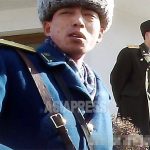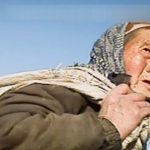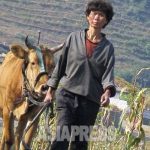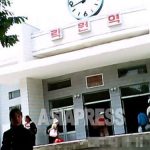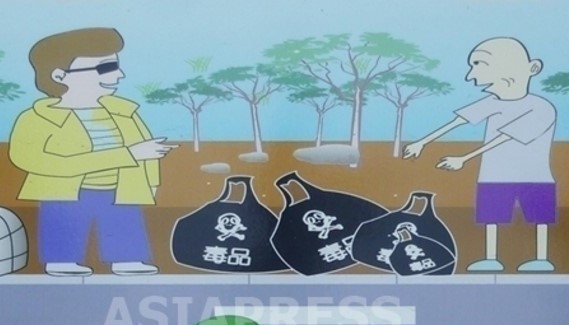
In North Korea’s Yanggang Province, people are engaging in smuggling and illegal crossings of the Yalu River. In Hyesan, meetings for ordinary residents are placing an emphasis on the strong police response to these activities. An ASIAPRESS reporting partner in the country provided this report in late October. (KANG Ji-won)
The reporting partner said that a lecture was held by police officials at an inminban (people’s unit) meeting on October 18. The police officials claimed that several people had been caught trying to smuggle and crossing over the river into China near Samjiyon and Kimhyongjik County, and that “anyone smuggling or crossing the river will face severe punishment as their actions would go against (the country’s) COVID-19 quarantine measures.”
Following the start of the COVID-19 pandemic in January 2020, the Kim Jong-un regime began fortifying barbed-wire fences along the banks of the Yalu River, ostensibly as part of efforts to stop the virus from entering the country. More security forces were stationed along the border as well, and anyone without permission was banned from approaching the river banks. These measures led to the end of smuggling and river crossings in the border region.
According to the reporting partner, the police have given lists of “suspicious persons” involved in smuggling in the past to people’s unit leaders, who check to see whether these people leave their homes at night. They also go around the homes in their neighborhood to check conditions there.
The restart of smuggling and river crossings appear to be due to difficulties faced not just by ordinary people but also soldiers and police officers tasked with guarding the border. The COVID-19 pandemic has stabilized in the country, and people are hoping for the restart of their economic activities. Soldiers and others guarding the border appear to be turning a blind eye to smugglers in exchange for bribes.
◆ Trading companies restart “state-led smuggling”
Meanwhile, “state-led smuggling” appears to have restarted. “State-led smuggling” refers to North Korean trading companies conducting trade with China with the permission by the North Korean authorities. The reporting partner told ASIAPRESS:
“A person working at a large trading company I know said that there was a recent government order to check to see if it would be possible to smuggle in cars, car parts and other car-related equipment from China without anyone having to go back and forth across the border. (Trading companies) are also starting the purchase of medicinal plants and mountain greens to smuggle into China. There’s been a start of various consultations with Chinese companies (in this regard).”
※ Inminban are the lowest administrative units in North Korea. They typically manage 20-30 households in a particular area. Inminban leaders relay orders from local district offices to residents and are also in charge of keeping a close eye on the (ideological) tendencies shown by ordinary people.
※ ASIAPRESS smuggles Chinese cellphones into North Korea to maintain communication with its reporting partners.
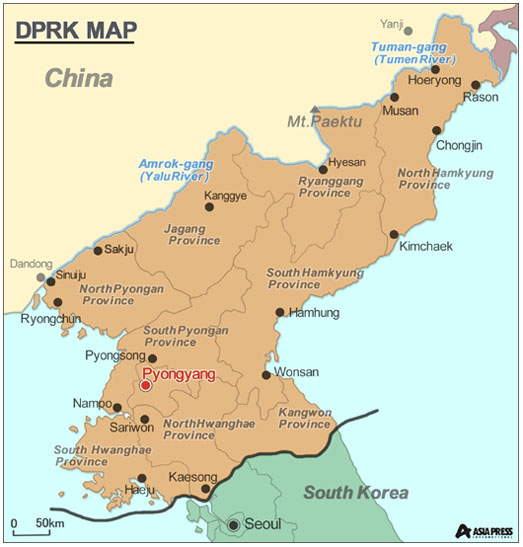
- <Inside N. Korea> High school students enter farm fields to steal crops to survive…Government officials check whereabouts of students who miss class
- <Inside N. Korea>A severe lack of medicines is pushing N. Korea’s medical system further into collapse…Imports of medical supplies are increasing, but without IVs, anesthesia, or disinfectant, people are dying
- The goal of N. Korea’s missile and nuclear development is to perpetuate the rule of the Kim family…The regime is ignoring the existence of its starving population ISHIMARU Jiro
- <Insider Interview>How have North Korea’s people viewed the country’s continued missile launches? With food shortages continuing, their distrust and disinterest in the government is deepening…
- <Inside N. Korea> Shocking levels of urban poverty forces an increasing number of people to abandon cities to beg in rural areas
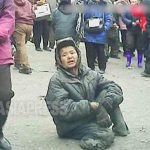
![[Video Report] The hidden homeless of Pyongyang](https://www.asiapress.org/rimjin-gang/wp-content/uploads/2016/12/1010-150x150.jpg)
